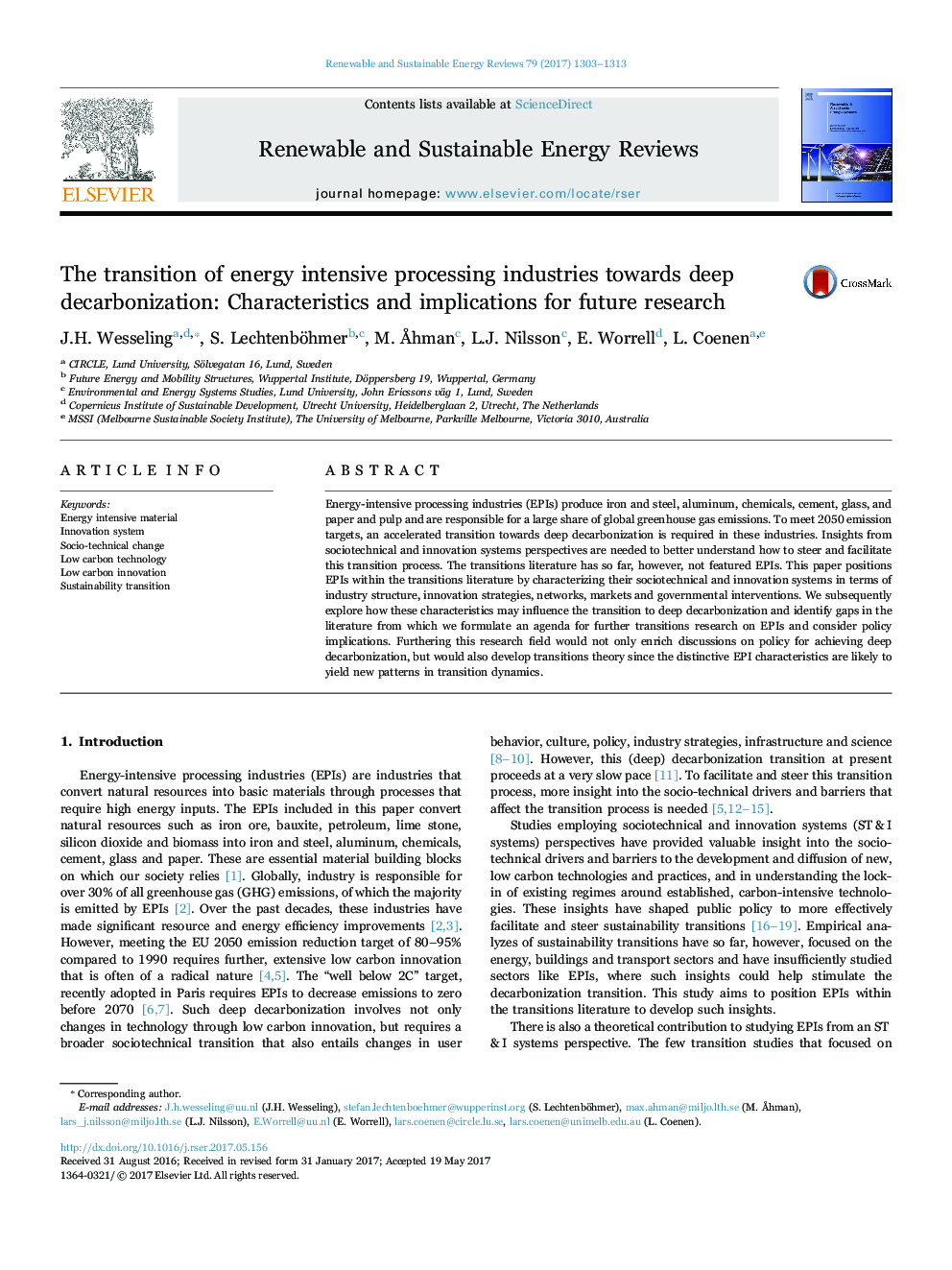| Article ID | Journal | Published Year | Pages | File Type |
|---|---|---|---|---|
| 5482639 | Renewable and Sustainable Energy Reviews | 2017 | 11 Pages |
Abstract
Energy-intensive processing industries (EPIs) produce iron and steel, aluminum, chemicals, cement, glass, and paper and pulp and are responsible for a large share of global greenhouse gas emissions. To meet 2050 emission targets, an accelerated transition towards deep decarbonization is required in these industries. Insights from sociotechnical and innovation systems perspectives are needed to better understand how to steer and facilitate this transition process. The transitions literature has so far, however, not featured EPIs. This paper positions EPIs within the transitions literature by characterizing their sociotechnical and innovation systems in terms of industry structure, innovation strategies, networks, markets and governmental interventions. We subsequently explore how these characteristics may influence the transition to deep decarbonization and identify gaps in the literature from which we formulate an agenda for further transitions research on EPIs and consider policy implications. Furthering this research field would not only enrich discussions on policy for achieving deep decarbonization, but would also develop transitions theory since the distinctive EPI characteristics are likely to yield new patterns in transition dynamics.
Related Topics
Physical Sciences and Engineering
Energy
Renewable Energy, Sustainability and the Environment
Authors
J.H. Wesseling, S. Lechtenböhmer, M. Ã
hman, L.J. Nilsson, E. Worrell, L. Coenen,
